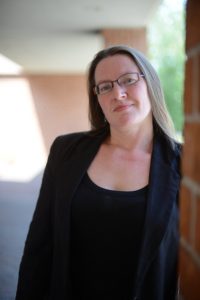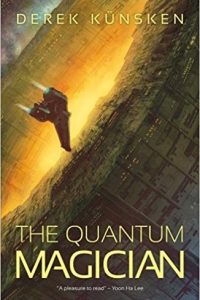Elizabeth Bear Guest Post–“The Worm in the Apple”
 I have… opinions.
I have… opinions.
That probably won’t come as a shock to anybody who has ever met me, or seen me on a panel, or read my blog. Or read one of my books.
Those opinions are the reason I write those books.
Specifically, I write books in order to have arguments with myself, or with other books, or with the world at large. While there’s certainly a place in the world for didactic literature (from Anna Sewell’s Black Beauty to Cory Doctorow’s Little Brother, books with an agenda are not going away) they will never be what I write.
Because I’ve never been interested, thematically, in writing about questions that I think I know the answers to.
But while the argument is where I come in–it’s my motivation, as the actor playing me in the movie of my life would say–all arguments aside, a story isn’t much good if it doesn’t, you know, tell a story. (Well, not entirely true. I do have some tolerance for meandering plotless fiction, though it’s generally not what I write.)
So: the book needs to be about the book first, and the argument has to exist in that space as naturally as a worm in an apple core.
I’m not interested in churching my readers, and never have been. Partly because I really have never believed there are one-size-fits-all answers to any problem, and the world in general rewards the imposition of moral absolutes with the creation of absolute horror.

At a Boskone some years ago, Alexander Jablokov said: “Others write comedies of manners; New Englanders write comedies of ethics.”
Which ties in usefully to the first thing–the one about not being interested in writing books where I already know the answers. I am, guilty as charged, a New Englander. And I must admit that this is exactly what I do. I put a bunch of different people in completely morally untenable situations, and then I heat their feet until they have to jump one way or the other.
Which brings us to the Eternal Sky books: Range of Ghosts, Shattered Pillars, and the one that’s published today, Steles of the Sky.
These books came about in part because I love epic fantasy, and also because I wanted to argue with it. (The worst fights are always with the people we love.)
I wanted to argue with its often static empires, its sometimes uncritical (or enthusiastic) monarchism, its Eurocentrism, its moral certitudes. I wanted to talk about economics, and elitism, and the politics of marginalized groups, and all that good stuff. And I wanted to do it in the framework of big magic, sprawling landscapes, interventionist gods, sweeping battles, death-or-glory stands, bitter sacrifice, great heroism, true love, sacred vows, and magical creatures. There’s a young man trying to find himself, and there’s a woman who knows who she is but has to take drastic action to make that life possible. There’s a tiger-woman warrior mystic who had a long argument with God before she decided he didn’t exist, and there’s a monk who has sworn himself to silence to hold in a terrible secret. There’s a very smart horse, a witch-queen, a necromancer, and a whole big pile of arguing academics.
There’s a particularly icky plague.
One thing fantasy does really well is concretize metaphor. The Eternal Sky has a big one, right in the title: in each kingdom, the sky reflects the power of the gods that rule there, as determined by the temporal power of their worshipers. The sky really is a different color in your enemy’s world, in other words–and his sun may move backwards, from your point of view. Or she may have too many moons. Or–
It’s my favorite visualization of incompatible worldviews yet. Because it turns out… my characters have opinions, too.
And thereby hangs what I hope is an engaging, epic tale.
About the Author:
Elizabeth Bear was born on the same day as Frodo and Bilbo Baggins, but in a different year. When coupled with a childhood tendency to read the dictionary for fun, this led her inevitably to penury, intransigence, and the writing of speculative fiction. She is the Hugo, Sturgeon, Locus, and Campbell Award winning author of 25 novels and almost a hundred short stories. Her dog lives in Massachusetts; her partner, writer Scott Lynch, lives in Wisconsin. She spends a lot of time on planes.





The sky really is a different color in your enemy’s world, in other words–and his sun may move backwards, from your point of view. Or she may have too many moons. Or–
It’s my favorite visualization of incompatible worldviews yet. Because it turns out… my characters have opinions, too.
It was brilliant when I first encountered it. It reminded me of Ravenloft, and Amber, and something bright and new from your mind.
I don’t know – maybe it’s just me, but it sure sounds like you indeed already knew the answers to those questions of “economics, and elitism, and the politics of marginalized groups, and all that good stuff” that your books were posing. Not that there’s anything wrong with that…
It’s my husband’s 50th birthday, so he gets to read Steles of the Sky first, which is evidence that I really, really love him. (Maybe I’ll just get a second copy.) The Eternal Sky is a stunning piece of work.
“Black Beauty” was didactic literature? Been *quite* a while since I read it, so I’m not sure how it would come across if I read it today…
I must say, while there may not be overarching all-consuming horror in this trilogy. The Necromancer and his really gross religious sect do an astonishingly good simulation. I loved the series!
must say, while there may not be overarching all-consuming horror in this trilogy. The Necro